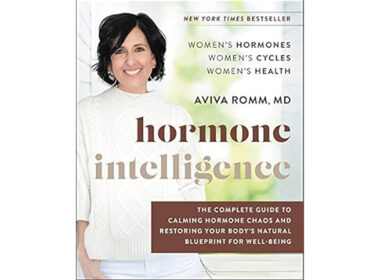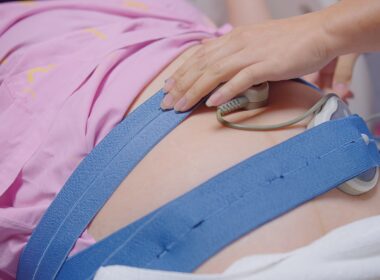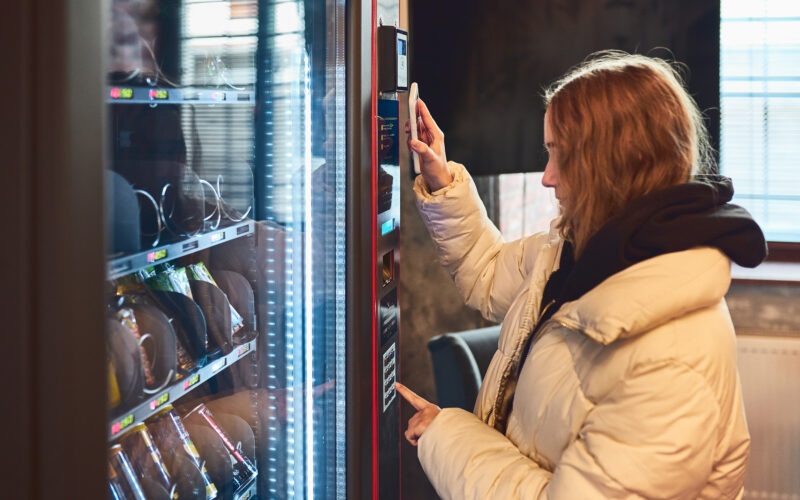Vending machines selling all manner of drinks and snacks are a commonplace sight on a college campus. Vending machines selling Plan B contraception? Maybe not so commonplace… yet. But next to the coffee machine in one corner of the University of Washington-Seattle’s Odegaard Library cafe stands a vending machine stocked with pregnancy tests and other “reproductive health care products” –including Plan B emergency contraception.
And UW isn’t alone. Since 2019, as many as 65 universities (click here for the list) across the country have joined the “Emergency Contraception for Every Campus” initiative. It’s a program designed to improve student access to emergency contraception (EC), with a particular focus on low-income students, historically black campuses, Catholic schools, schools in states with more restrictive abortion laws, and schools with low graduation rates. Many have chosen vending machines or text-based delivery services as a way to discreetly provide students with these drugs.
What’s the case for stocking Plan B in vending machines on college campuses?
Advocates highlight the lack of access to basic necessities among certain students as a driving force behind Plan B vending machines and other low cost, discreet emergency contraceptive delivery services on college campuses. Laura Saavedra Forero, Director of Community Service for UNC’s largest Latino organization, Mi Pueblo, told The Daily Tar Heel: “Considering how many folks don’t have access to food, then how do we expect them to be able to afford emergency contraceptives?”
Others emphasize religious and cultural stigmas surrounding access to contraception among college students. In response, these campus initiatives purposefully seek to keep things anonymous–whether through inconspicuous kiosks or texting help lines to arrange for discreet drop-offs.
College campuses have a vested interest in their students’ health and wellbeing
It makes sense that colleges would want to implement programs that promote their students’ health and wellbeing. From on-campus farmers’ markets to gyms and fitness classes, schools are increasingly encouraging the health and wellness of their students (my own alma mater boasts a robust outdoor program that is required for every student!), knowing that a healthy body makes for a healthy mind, and hence, a successful student. A successful student is less likely to drop out. Higher retention rates in turn help academic institutions’ bottom lines.
But the question remains: is providing EC to students the best way to promote their health and well-being? Or is something lacking in this approach?
What’s the case against Plan B vending machines on college campuses?
The main arguments against Plan B vending machines on college campuses point out that hormonal birth control (of which Plan B is just one form) detracts from female students’ health.
Hormonal birth control in general does not promote female students’ health
Though historically downplayed by medical organizations and the media, hormonal birth control (HBC) can cause a whole host of negative side effects. Elon Musk’s viral tweet about how birth control “makes you fat” and raises depression and suicide risks recently garnered mainstream attention. For a decade now, we at Natural Womanhood have emphasized the pitfalls of HBC, from increased risk of breast cancer to fatal blood clots to the ways it sabotages young women’s mental health. HBC also doesn’t prevent the spread of STIs, which have reached epidemic status amongst college students—especially amongst black and American Indian young people.
Plan B and other forms of EC come with their own risks and pitfalls. Similar to the Pill, Plan B is intended to prevent ovulation. It does this by delivering a mega-dose of synthetic progestin, which means it can also cause headaches, nausea, irregular bleeding, fatigue, and abdominal pain, to name just a few side effects. Additionally, some women have experienced cycle disruption that continued for months after a single dose.
Furthermore, use of EC or any form of hormonal birth control deprives women of the health benefits of menstruation and ovulation. The menstrual cycle isn’t some archaic biological holdover like the appendix is believed to be. Brain, breast, bone, heart, and immune health are all positively affected by the menstrual cycle, and ovulation in particular.
Plan B’s pregnancy prevention effectiveness is questionable
What’s more, Plan B simply isn’t that effective. Its failure rate may be as high as 32%, even when taken as directed. To put it into perspective, that’s way less effective than even the least effective methods of birth control, like condoms and spermicides.
Overpromising on the efficacy of emergency contraception might make students more willing to engage in risky behaviors. With Plan B dispensers tucked into every corner of their campus, students may be tempted to make sexual choices under the (mistaken) assumption that the drug will be readily available to function as their “get out of jail, free” card.
Fertility awareness fosters lasting intimacy in relationships, while birth control does not.
In all the consternation over college hook-up culture, many fail to point out that birth control, perhaps especially Plan B and other forms of emergency contraception, further enables that culture. And hook-up culture, by definition, is simply not fertile ground (pun intended) for lasting relationships. Just look at how some of these college campuses are distributing EC; anonymously, secretly, via technology that allows for zero human interactions. There’s no connection to a healthcare provider to test for STIs after a casual hookup. And while a pregnancy scare can be an intensely emotional experience, a young woman who punches the Plan B button on a vending machine has no one with whom to process her fears.
Looking more long-term, hormonal birth control use is associated with increased rates of divorce, and it can affect a woman’s choice of partners and ability to healthily regulate her emotions. Plus, it shifts the responsibility of conception onto the woman’s shoulders alone. It also muddies the waters of “consent” because it leaves little room for open discussions about sex and what sexual activity means for a relationship.
On the contrary, fertility awareness enhances a couple’s relationship, allows a single woman to be choosy about her partner, encourages men to learn about their own fertility and their partner’s fertility, and gives women especially the space to be open and honest with their partner about their comfort level with having sex. For college-age women who are not thinking about marriage or family yet, learning fertility awareness can foster community and build relationships with other young women who are passionate about women’s health and learning more about their own bodies (like in our own Cycle Mindfulness Clubs!).
Is it true that Plan B vending machines are needed because “everyone’s doing it” or “college students will have sex anyway”?
Finally, Plan B vending machines seem to reflect an assumption by college campus administration that young people will have sex no matter what. Thus, they believe, it falls to them–in the interest of promoting student success–to provide the means of avoiding pregnancy. But the “everyone’s doing it” mantra simply isn’t true.
Fed up with using and being used by others (which is a central feature of hookup culture), increasing numbers of young men and women are choosing “celibacy,” at least for a time. As many people have found, practicing abstinence (or “celibacy,” as it’s referred to on TikTok) frees them to heal from toxic romantic relationships, deepen friendships with peers, and focus more intentionally on their career and life goals, all of which can contribute to student success.
The bottom line on Plan B vending machines on college campuses
College campuses that stock Plan B in vending machines presumably have good intentions: they want their students to enjoy the college experience and succeed without worrying about pregnancy or single parenthood. However, if they truly want their students to thrive, it would be better to focus on providing resources that teach students, especially female students, how their bodies work and why, and to challenge the pernicious assumption that hook-up culture is a good or necessary part of the college experience. Wouldn’t this approach empower young women to make truly informed decisions about their sexual lifestyle and future career choices?
As the saying goes, “If you educate a man, you educate a man; but if you educate a woman, you educate a generation.” A woman with knowledge is an empowered woman; and this, it seems to me, is what a college campus is all about.







